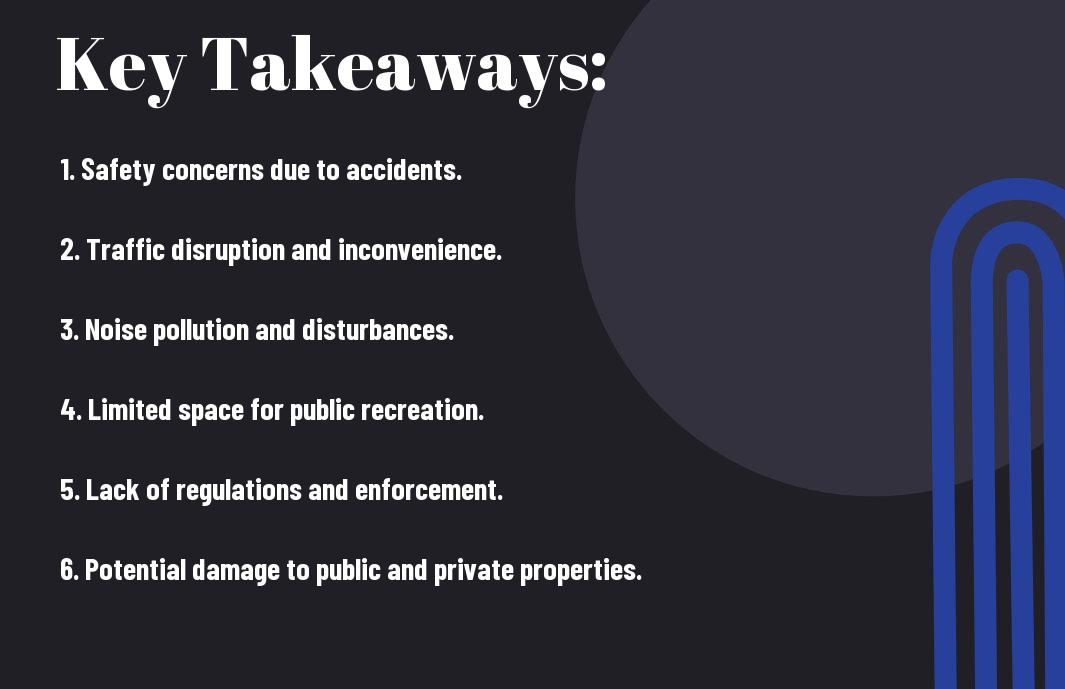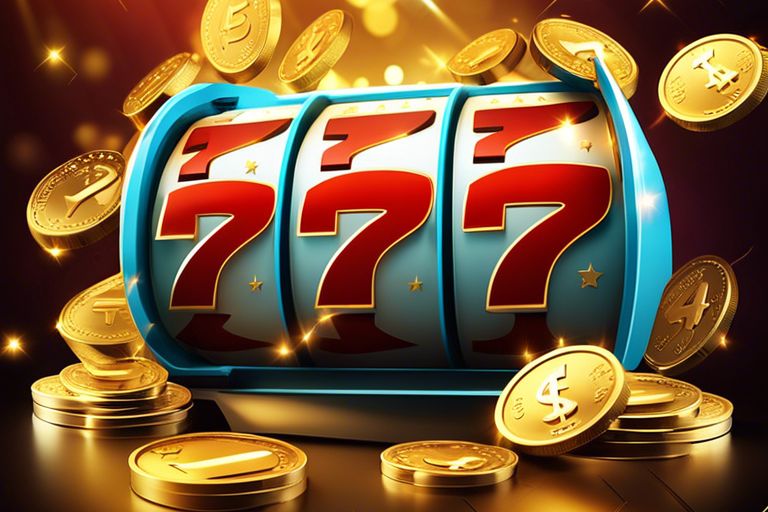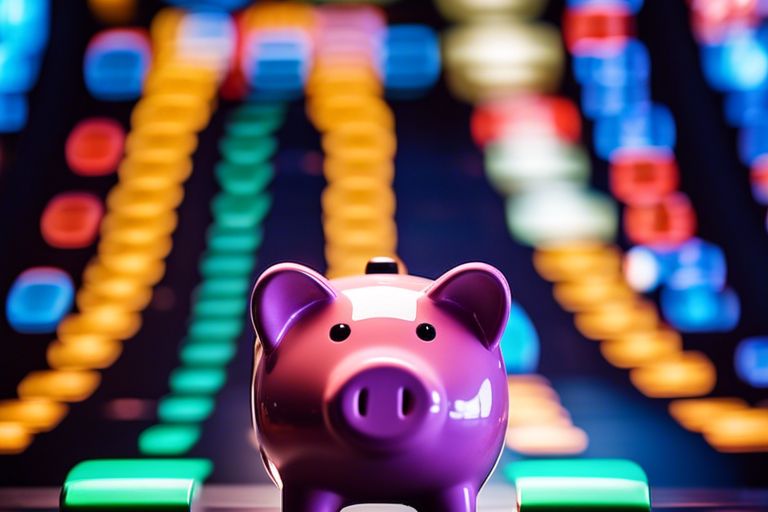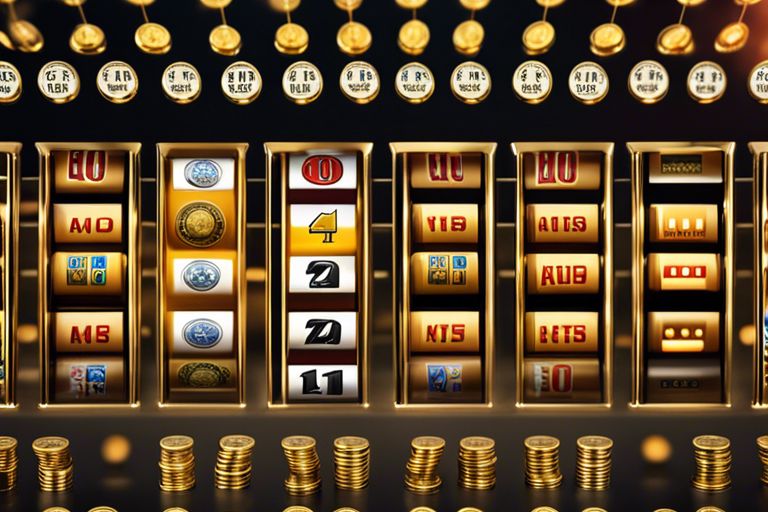With the rise of POGO (Philippine Offshore Gaming Operators) in the Philippines, you might be wondering why the government has cracked down on this lucrative industry. Stay tuned as we explore the reasons behind the ban and the implications it has on the country’s economy and society.
Key Takeaways:
- Public Safety Concerns: Pogo operations have been associated with various illicit activities such as human trafficking, money laundering, and cybercrimes, posing risks to the well-being and security of the Filipino populace.
- Lack of Regulation: The rapid growth of Pogo industry in the Philippines has outpaced the government’s ability to effectively regulate and supervise these operations, leading to numerous legal and social issues.
- Negative Impact on Society: The proliferation of Pogo businesses has been linked to a rise in criminal activities, increased competition for commercial space, and issues like rising property prices, thereby adversely affecting the local economy and community.

The History of Pogo in the Philippines
The rise of pogo as a popular form of entertainment
Before venturing into why pogo is now illegal in the Philippines, let’s take a look back at its beginnings. Pogo, short for Philippine Offshore Gaming Operators, first gained popularity in the early 2000s as a form of online entertainment that allowed users to play a variety of casino games from the comfort of their own homes. The convenience and accessibility of pogo quickly made it a favorite pastime for many Filipinos looking to try their luck and have some fun.
Early warnings and concerns about pogo’s safety
One of the earliest signs that pogo might not be all fun and games was the growing concern about its safety and security. As the industry rapidly expanded, so did reports of illegal activities, such as money laundering and tax evasion, associated with some pogo operators. These issues raised red flags among government officials and citizens alike, leading to calls for stricter regulations and oversight to ensure that pogo was being conducted in a legal and ethical manner.
However, despite efforts to address these concerns, the reputation of pogo continued to be tarnished by ongoing controversies and scandals, ultimately leading to the decision to ban the industry altogether in the Philippines.
The Safety Concerns
Injuries and accidents related to pogo use
Any activity that involves jumping on a stick can pose risks, especially when safety precautions are not in place. In the case of pogo sticks, injuries can range from minor cuts and bruises to more serious sprains, fractures, or head injuries if a fall occurs. Without proper protective gear and supervision, you are putting yourself at risk of experiencing these mishaps.
The lack of regulation and safety standards
Safety should always be a top priority, but when it comes to pogo sticks in the Philippines, the lack of regulation and safety standards makes it even more concerning. Without clear guidelines on the recommended age for pogo stick users, quality control of the products, or guidelines on where and how to safely use them, it’s easy for accidents to happen.
To ensure the safety of pogo stick users, it is crucial for authorities to step in and establish regulations and safety standards that pertain to the manufacturing, selling, and usage of these devices. This will help create a safer environment for those who want to enjoy pogo sticks without unnecessary risks.
Expert opinions on the dangers of pogo
Accidents can happen in the blink of an eye, and experts in the field of sports and recreation warn about the potential dangers of using pogo sticks. From orthopedic concerns to the risk of falling and sustaining serious injuries, these professionals emphasize the importance of taking safety precautions and being aware of the risks involved when using pogo sticks.
Pogo sticks may seem like harmless fun, but it’s vital to understand the potential risks and take necessary precautions to avoid accidents and injuries. By being informed and following safety guidelines, you can still enjoy the thrill of bouncing around on a pogo stick while minimizing the chances of getting hurt.
The Legal Background
The laws and regulations surrounding pogo in the Philippines
Keep in mind that the Philippines has strict laws and regulations when it comes to Philippine Offshore Gaming Operators (POGO). The government has put in place rules to monitor and regulate these operations to ensure transparency and prevent illegal activities.
How pogo was deemed illegal and why
Surrounding the legality of POGO in the Philippines, it was deemed illegal due to concerns about tax evasion, money laundering, and the influx of illegal foreign workers. The government took action to crack down on these issues, leading to the ban on POGO operations.
It was found that many POGO companies were not paying the correct taxes and were involved in illicit activities, which prompted the government to take a firm stance against their operations.
The role of government agencies in enforcing the ban
Government agencies such as the Philippine Amusement and Gaming Corporation (PAGCOR) and the Bureau of Internal Revenue (BIR) play a crucial role in enforcing the ban on POGO operations. They work together to ensure that all POGO companies are compliant with the law and face consequences if found violating regulations.
Understanding the significance of these government agencies in enforcing the ban is crucial to grasp the gravity of the situation surrounding POGO in the Philippines.
The Impact of the Ban
The effects on pogo enthusiasts and businesses
Once again, the ban on POGO in the Philippines has left enthusiasts and businesses in a state of confusion and distress. If you were someone who enjoyed the thrill of online gambling through POGO platforms, you are now left with limited options to satisfy your gaming cravings. The closure of these operations has not only affected the players but also the businesses that were thriving due to the POGO industry.
The rise of underground pogo scenes
To add to the tumult, the ban has led to the rise of underground POGO scenes in the Philippines. Any avid player knows that where there’s a will to gamble, there’s a way. Despite the prohibition, secret POGO gatherings have sprung up, catering to those unwilling to let go of their favorite pastime. These covert operations come with their own set of risks and uncertainties.
Scenes like these operate in the shadows, always at risk of being shut down by authorities. Not only do they pose a threat to the players involved, but they also contribute to the challenge of enforcing the ban effectively.
The economic implications of the ban
Pogo, once a booming industry in the Philippines, has taken a significant hit due to the ban. The economic implications are vast, affecting not only the POGO companies themselves but also the various businesses that were sustained by the industry. From real estate to service providers, the ripple effect of the ban can be felt across different sectors.
As the government continues to crack down on POGO operations, the future of this once-thriving industry remains uncertain. The loss of revenue and employment opportunities has left many wondering about the long-term consequences of the ban on the country’s economy.
The Cultural Significance of Pogo
All rebellious acts have a cultural significance, and pogo is no exception. In the Philippines, pogo serves as a form of self-expression and rebellion against societal norms. The energetic dancing, wild movements, and punk music create a space for individuals to break free from the constraints of traditional Filipino culture. Pogo is a way to rebel against the expectations placed on the youth and a way to express frustration with the status quo.
Pogo as a form of self-expression and rebellion
One of the key aspects of pogo is its ability to provide a platform for individuals to showcase their unique identities and challenge authority. The aggressive, unapologetic nature of pogo dancing is a direct response to the suppression of individuality and voice in Filipino society. By participating in pogo, individuals can push back against the rigid social structures that often limit personal freedom and creativity.
The role of pogo in Filipino youth culture
Significance goes beyond just being a rebellious act; pogo plays a crucial role in shaping Filipino youth culture. It serves as a way for young people to bond over shared experiences of frustration and alienation. In a society where the older generations hold a significant amount of power and influence, pogo allows the youth to carve out their own space and create a sense of community and belonging.
Plus, pogo acts as a form of cultural resistance against the commercialization and Westernization of Filipino culture. By embracing pogo, the youth are reclaiming their roots and asserting their Filipino identity in the face of outside influences. The DIY ethos of pogo also empowers individuals to take control of their narratives and challenge mainstream ideals.
The symbolism of pogo as a form of resistance
One way pogo serves as a symbol of resistance is through its association with punk music and anti-establishment ideologies. The raw, visceral energy of pogo reflects a dissatisfaction with the current social and political landscape in the Philippines. By engaging in pogo, individuals are not only rebelling against traditional cultural norms but also standing up against injustices and inequalities present in society.
This defiance is a powerful statement that transcends the dance floor; it symbolizes a larger movement towards change and empowerment. Pogo is not just about dancing wildly; it is a form of resistance that challenges the status quo and demands to be heard.
The Future of Pogo
Efforts to legalize pogo in the Philippines
Despite the current ban on pogo operations in the Philippines, there have been efforts to legalize and regulate this industry. Proponents argue that legalizing pogo could bring in significant revenue for the country and create job opportunities for Filipinos. However, there are concerns about the social costs and potential negative impact on local communities that need to be carefully addressed.
Alternative forms of entertainment and recreation
Forms of entertainment and recreation that do not involve gambling, such as sports events, music concerts, and cultural festivals, are gaining popularity in the Philippines. These activities not only provide enjoyment and relaxation but also promote healthy lifestyles and community engagement. As the country seeks to move away from pogo, investing in alternative forms of entertainment can help fill the void left by the absence of this controversial industry.
Recreation plays a vital role in maintaining the overall well-being of individuals and communities. By encouraging participation in leisure activities like sports, arts and crafts, and outdoor adventures, the Philippines can create a more balanced and fulfilling lifestyle for its people. Embracing these alternative forms of entertainment can also reduce dependency on gambling-related activities and promote a more wholesome society.
The potential for pogo to be rebranded as a safe activity
Any potential for pogo to be reintroduced in the Philippines would require a strategic rebranding effort to position it as a safe and responsible form of entertainment. This could involve implementing strict regulations, promoting responsible gambling practices, and conducting public awareness campaigns on the potential risks associated with pogo. By addressing the concerns that led to the initial ban, pogo operators could potentially regain public trust and operate in a more sustainable manner.
Potential strategies to rebrand pogo could include partnering with reputable organizations to enhance transparency and accountability, incorporating technology to ensure fair play, and offering support services for individuals struggling with gambling addiction. By demonstrating a commitment to responsible gaming practices, pogo companies could rebuild their reputation and contribute positively to the Philippine economy.
Final Words
Following this exploration of why pogo is illegal in the Philippines, it’s clear that the influx of online gambling operators brought both economic benefits and social issues to the country. The government’s decision to crack down on pogo operations was driven by concerns about money laundering, tax evasion, and the negative impact on local communities. While the ban has its critics and supporters, one thing is certain – the pogo industry’s future in the Philippines remains uncertain.
Q: Why is pogo illegal in the Philippines?
A: POGO (Philippine Offshore Gaming Operator) has faced scrutiny due to issues such as tax evasion, money laundering, and concerns over national security.
Q: What are some of the key reasons for the illegal status of POGO in the Philippines?
A: Some of the main reasons for the illegal status of POGO in the Philippines include non-compliance with tax regulations, involvement in illegal activities, and the negative impact on the local community.
Q: How does POGO affect the economy of the Philippines?
A: While POGO has contributed to the economy by generating revenue and providing job opportunities, its illegal status has led to losses in tax revenue and negative implications for the overall economy.
Q: What measures have been taken by the Philippine government to address the issues related to POGO?
A: The Philippine government has implemented various measures to regulate POGO operations, including cracking down on tax evasion, enhancing monitoring systems, and imposing stricter penalties for non-compliance.
Q: Is there a possibility of POGO becoming legal in the Philippines in the future?
A: The legality of POGO in the Philippines remains uncertain, as ongoing discussions and reforms are being made to address the issues associated with its operations. Depending on the outcomes of these efforts, POGO may or may not become legal in the future.






